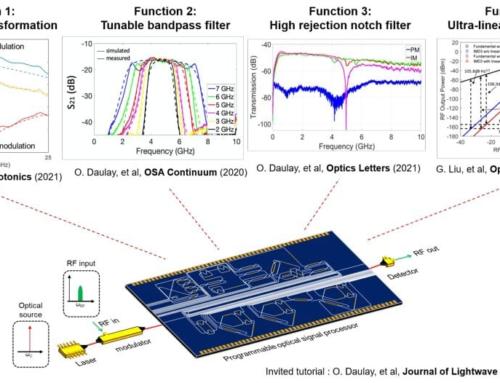Illegally-registered SIM cards are a significant obstacle for police investigations, according to a source familiar with police matters.
As part of the Regulation of Interception of Communications and Provision of Communication-related Information Act (RICA), all SIM cards sold in South Africa must be registered.
Since 2009, mobile service providers have been required to capture information such as the full names, surname, ID number, and residential details of any person who wishes to use a SIM card operating on their network.
The legislation was intended to assist police and other law enforcement agencies by allowing them to trace phone numbers to individuals in the event that a number is used to carry out a crime.
If the police are able to identify this number, the relevant mobile operator is subpoenaed to provide the suspect’s details.
However, according to an anonymous source familiar with police matters, the screening process for access to RICA registration and the capturing system is flawed.
As a result, many SIM cards from South Africa’s mobile operators are fraudulently registered and used by criminals in the course of committing serious crimes.
According to the source, police investigations have found thousands of these fraudulently-registered cards and unregistered cards commonly available to buy for prices between R5 and R20.
Aside from hindering investigations, illegal SIMs also make it difficult to gather evidence for use in prosecution.
Cannot link to suspects
The source told MyBroadband a phone number can rarely be traced back to the actual criminal.
“I would estimate that in only about 10% of cases the police are able to link the phone number to the actual suspect,” the source said.
In the case of most illegal SIMs, captured RICA details would either be false or completely nonsensical.
“The person’s name, surname, ID, and address would sometimes just be a mixture of random letters,” the source said.
Examples of this include subscriber names that consisted only of capitalised consonants and ID numbers made up of only two letters and four numbers.
This was because improper information was submitted during the SIM card’s RICA registration and no verification had been performed on the information provided.
Illegal SIM process
To RICA a SIM, a vendor must be registered as an agent for a telecommunications company, which is sub-contracted by a mobile operator.
These agents are trained by the telecommunications company and allowed to register SIM cards for mobile service providers.
They are furnished with the necessary software to perform the registrations via mobile applications, a desktop program, or with appropriate RICA equipment.
Agents are paid a fee for each SIM card they register, which provides an incentive to RICA as many SIMs as possible.
Illegal SIM cards are prepared by inserting them into a phone and, once the card is RICA’d with invalid details, placing them back into their packaging, onto which the phone number is written.
The source noted that in many instances the offending agents operated from spaza shops.
However, police investigations determined the SIMs were also sold by legitimate retailers at South Africa’s ports of entry and in neighbouring countries.
By the police’s experience, it appeared the majority of SIMs being used in the country were illegally registered.
The source said that for a certain mobile operator, one particular agent was responsible for all of its illegally-registered SIMs. This could point to the repeated use of the same agent’s login details by multiple parties.
The source told MyBroadband the punishment for offences with regards to illegal RICA registrations in South Africa is a R60,000 fine or one-year imprisonment.
The police maintains that the responsibility of ensuring that telecommunication companies employ legitimate agents and manage the RICA process lies with mobile operators.
Law enforcement has registered the urgency to address the problem, but believes service providers are reluctant to address the issue as they stand to lose business if these SIMs are deactivated, the source added.
Mobile networks respond
MTN Executive of Corporate Affairs Jacqui O’Sullivan refuted allegations that the operator was reluctant to deactivate illegal SIMs.
“MTN deactivates all SIM cards where it is established that RICA legislation has not been adhered to,” O’Sullivan said.
According to MTN, there is no basis for the claim that most SIM cards in the country are illegally-registered.
Cell C echoed this and said it was dedicated to complying with the requirements under RICA legislation.
“When we are made aware of any possible non-compliance incidents, we immediately assume an investigation process, and upon finalisation, appropriate action is taken,” Cell C said.
Both MTN and Cell C noted that it was the duty of every subscriber or individual who purchases a SIM card to ensure they complied with the law.
Telkom said each of its dealers had an official RICA officer or agent who is responsible for proper compliance.
MTN and Cell C said their RICA Agents received proper training, guidance, and evaluation in line with RICA.
O’Sullivan said MTN had a zero-tolerance approach to non-compliance and enforced strict ongoing compliance monitoring with its partners.
Violators are punished with fines, termination of access to MTN’s SIM registration system, and in certain instances, the operator would terminate commercial agreements with guilty partners.
Telkom said it had contracts with agents which placed a duty on them to ensure full compliance with the relevant legislative requirements.
Verification of submitted information
Cell C said various validation rules were in place for submission to the system but explained that RICA does not require additional validation of data against third-party databases such as the Home Affairs National Identity System (HANIS).
MTN said it has improved its internal system capabilities by enabling Artificial Intelligence to identify bad information prior to it being submitted to the operator.
It is unclear if one instance seen by MyBroadband where a four-letter capitalised name and surname was registered on MTN’s network occurred before or after these AI measures were implemented.
O’Sullivan said MTN was working with Home Affairs and State Security agencies to ensure information captured on its RICA systems aligned with the information on state-owned citizen registries.
Cell C said it was in talks with the authorities to improve the implementation of the RICA process and align it with the latest technology to enhance the completeness and quality of data.
Vodacom did not respond to a request for comment by the time of publication.



